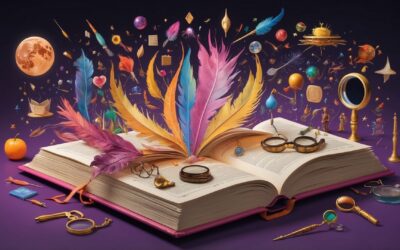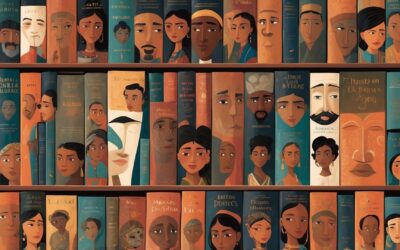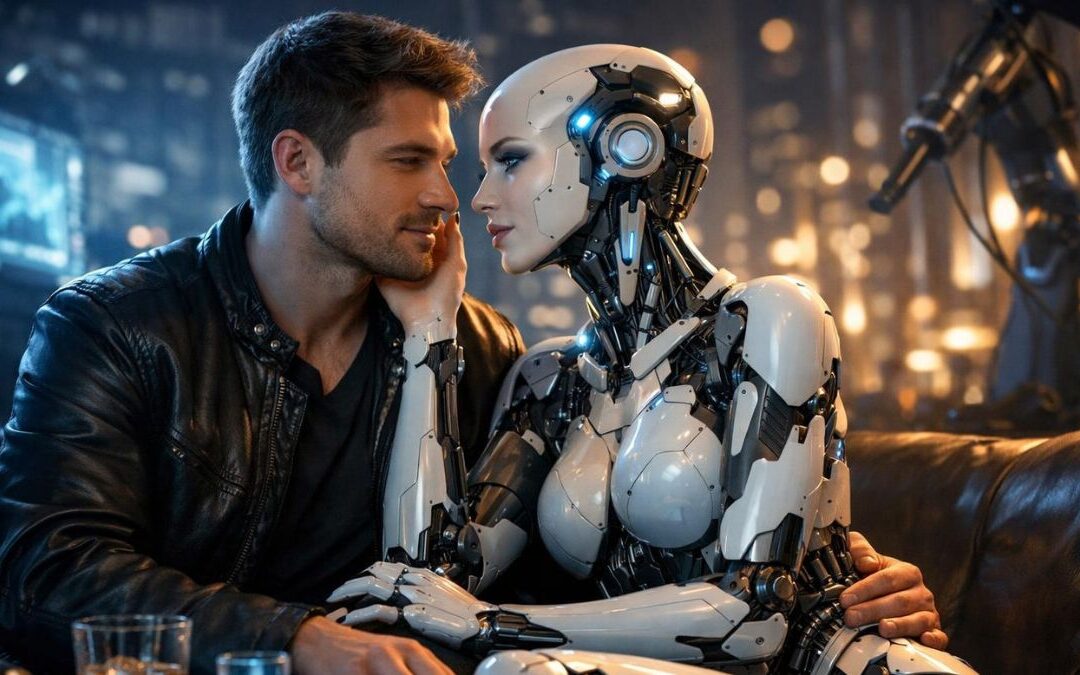In a quaint, dimly lit room of a traditional house, nestled amidst the alleys of a European town, a grandfather settled into a rocking chair with a hefty book in hand. The leather spine creaked, and the scent of aged pages filled the air. As he began to read, his voice bringing to life tales of gallant knights and elusive dragons, his grandchildren gathered around, their wide eyes reflecting the flickering candlelight and their imaginations.
Yet, today, that very room stands in stark contrast to the vibrant, pixel-lit screens of e-readers and smartphones. An unprecedented digital renaissance has rewritten the narrative of literature. But what has this transformation meant for the art of storytelling?
The Advent of the E-Book
It began with the e-book. The dawn of the 21st century saw technology companies and publishers taking a gamble on this new digital medium. By the time the first-generation Kindle was released in 2007, a seismic shift was already underway. No longer did literature remain bound by the physical confines of paper and ink. Now, entire libraries could fit into the palm of one’s hand, accessible anywhere, anytime. The world was, quite literally, at one’s fingertips.
Enter Interactive Literature
But the digital realm offered more than just convenience. With the evolution of technology, literature began to be more than passive reading. Interactive eBooks and novels emerged, drawing the reader into the narrative like never before. Stories were no longer linear; choices made by readers could lead to multiple endings, each pathway unveiling a different storyline.
Remember those “Choose Your Own Adventure” books? They’ve found a new home in the digital era. Platforms like Inkle and Choice of Games started weaving intricate tales where readers became the protagonist, deciding their fate at every twist and turn.
The Ephemeral Nature of Digital Reading
Interestingly, alongside the rise of these sprawling, interactive narratives came an entirely different trend: ephemeral literature. Platforms like Snapchat and Instagram introduced ‘stories’ – moments captured for a fleeting 24 hours, then disappearing into the digital void. Writers began crafting micro-stories, their narratives playing out in short, powerful bursts, capturing the essence of moments, emotions, and experiences in the blink of an eye.
This ephemerality aligned with the fast-paced lifestyles of modern readers. With information overload and dwindling attention spans, there emerged a newfound appreciation for brevity. Literature, once synonymous with hefty tomes, now thrived in 280-character tales on platforms like Twitter.
Interactivity Beyond Choices
The boundaries of what constituted literature expanded even further. Augmented Reality (AR) and Virtual Reality (VR) started blending the lines between reading and experiencing. Immersive tales where readers could step into fantastical realms or historic epochs became a reality. Digital poetry evolved, where words floated and rearranged themselves, resonating with the reader’s emotions and surroundings.
Platforms like Wattpad enabled fan-fiction communities to rise, giving readers the tools to craft their continuations or alternate realities of their favorite stories. Literature was no longer just about consumption but also collaboration.
The Concerns of Digitization
Yet, for all its wonders, the digitization of literature wasn’t without concerns. The tangible feel of a book, the turning of pages, and the serenity of reading under the canopy of a tree – were these experiences lost? And what of the economic models? As piracy became rampant, authors and publishers grappled with new challenges, searching for sustainable methods to continue their craft.
Moreover, the ephemeral nature of digital reading raised questions about the permanence and preservation of literature. If stories were fleeting, disappearing into the ether, what legacy would they leave?
Embracing the Duality
Despite the apprehensions, it’s essential to understand that the digital transformation didn’t diminish traditional literature but rather enriched it. The digital era has broadened the horizons of storytelling, introducing innovative mediums and narratives while keeping the core essence of literature alive.
In the heart of it all, the age-old act of storytelling remains unchanged. Whether it’s the grandfather narrating tales of yore or an interactive, digital narrative that immerses readers into fantastical worlds – the magic of stories continues to captivate us.
In the vast expanse of the digital cosmos, as stories flutter like ephemeral fireflies, literature thrives – evolving, reshaping, and redefining the very fabric of storytelling. The age-old tale continues, adapting to the ever-changing dance of time.
Keywords
- Quaint: Attractively unusual or old-fashioned.
- Ephemeral: Lasting for a very short time.
- Seismic shift: A significant change or transformation.
- Interactive: Involving the active participation of the reader or user.
- Ephemeral literature: Writings or literature that lasts for a short time, often disappearing after being read or after a specific duration.
- Protagonist: The main character in a story.
- Augmented Reality (AR): A technology that superimposes a computer-generated image on a user’s view of the real world.
- Virtual Reality (VR): A simulated experience that can be similar to or completely different from the real world.
- Digitization: The process of converting information into a digital format.
- Apprehensions: Anxiety or fear that something bad will happen.
Key Takeaways
- The digital age has transformed the traditional mode of literature, introducing e-books and interactive narratives.
- Ephemeral literature, such as social media stories, represents a trend towards short, powerful bursts of narrative.
- Interactive literature has allowed readers to become protagonists, with their choices shaping the story’s outcome.
- Advanced technologies like AR and VR are merging reading with experiential storytelling.
- The rise of digital platforms has enabled collaborative writing and fan-fiction communities.
- With the benefits of digital literature come challenges, including concerns about the tangible experience of reading and economic implications.
- Despite the rapid digitization of literature, the core essence of storytelling remains the same.
Check out the Story of Literature Article Series
The Story of Literature: Delving into Humanity’s Timeless Narratives (Featured Article)
From Campfire Tales to Digital Screens: The Evolution of Storytelling
Drama through Time: From Ancient Shadows to Modern Stages
The Mesmerizing Power of Novels: A Deep Dive into Our Fascination with Long Narratives
Echoes of Society: The Deep Interplay between Literature and Cultural Values
Navigating the Digital Revolution: How Literature Evolves in a Tech-driven World
Universality in Literature: Uniting Hearts and Minds Across Cultures










0 Comments